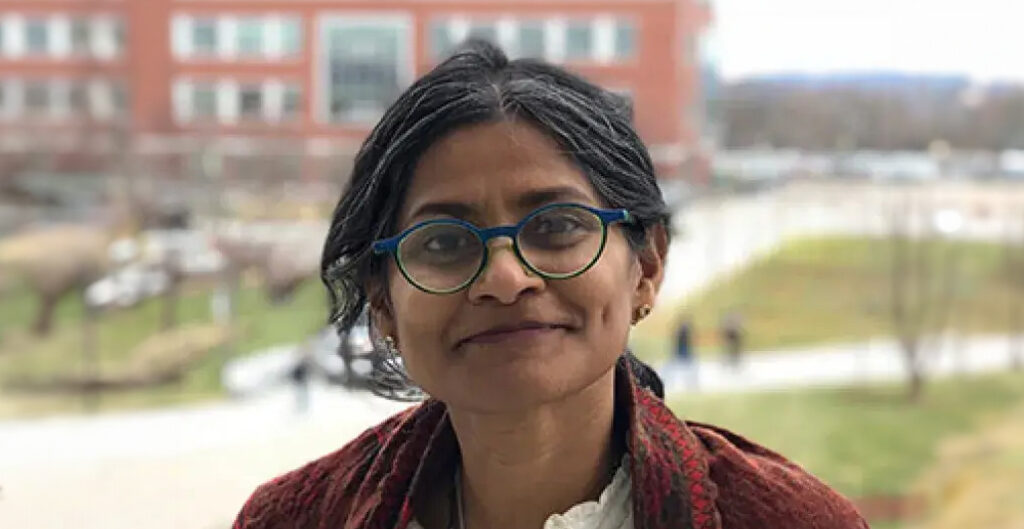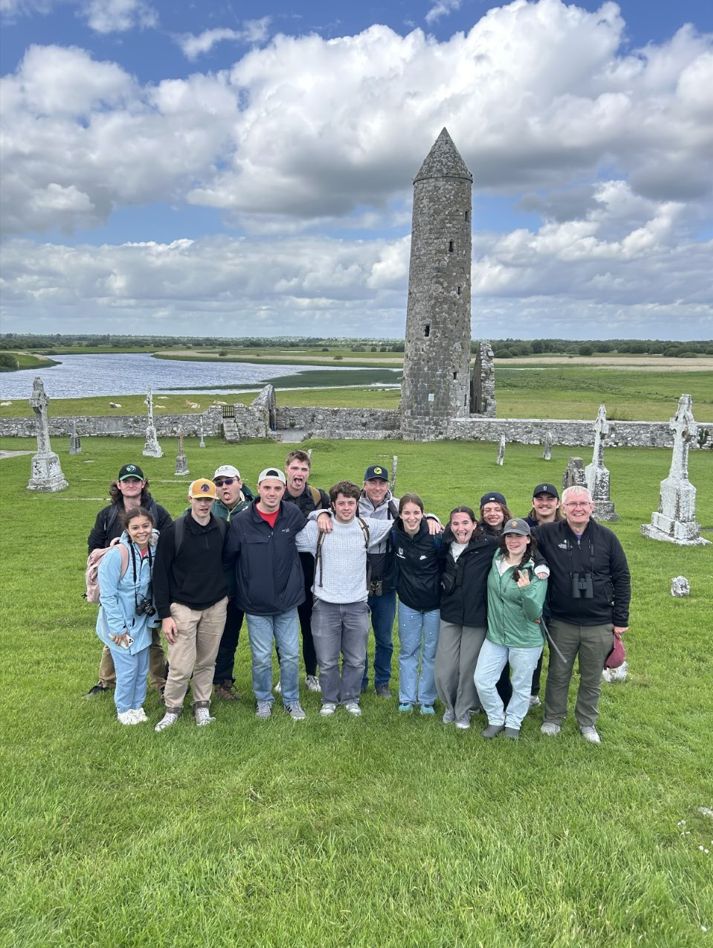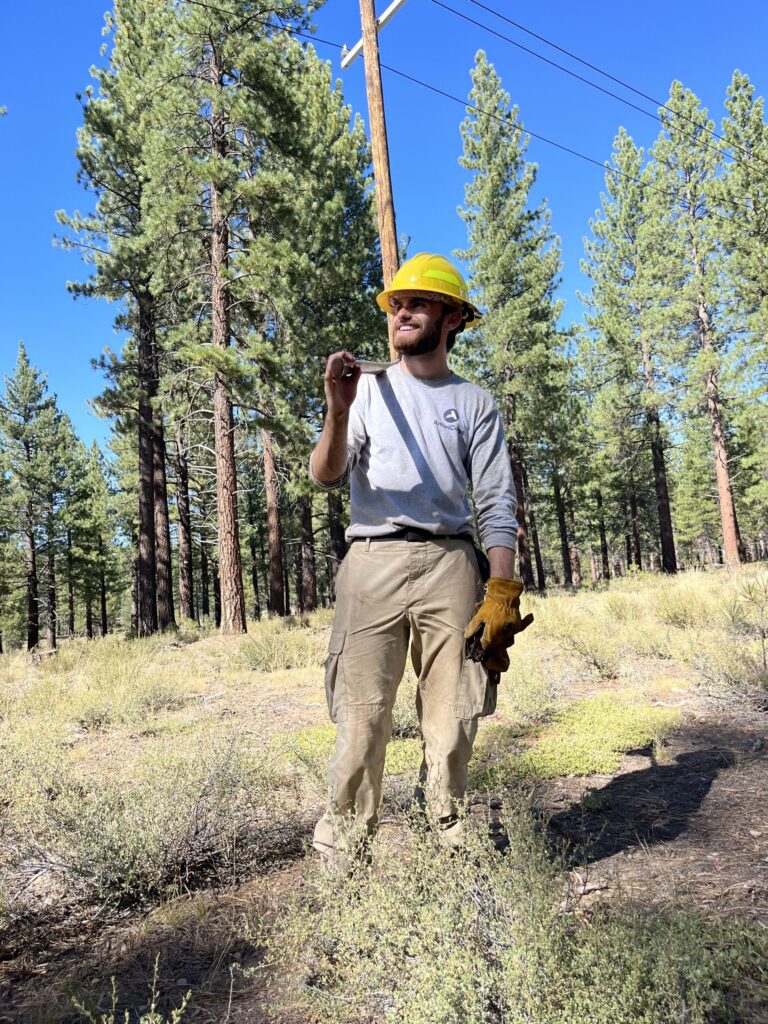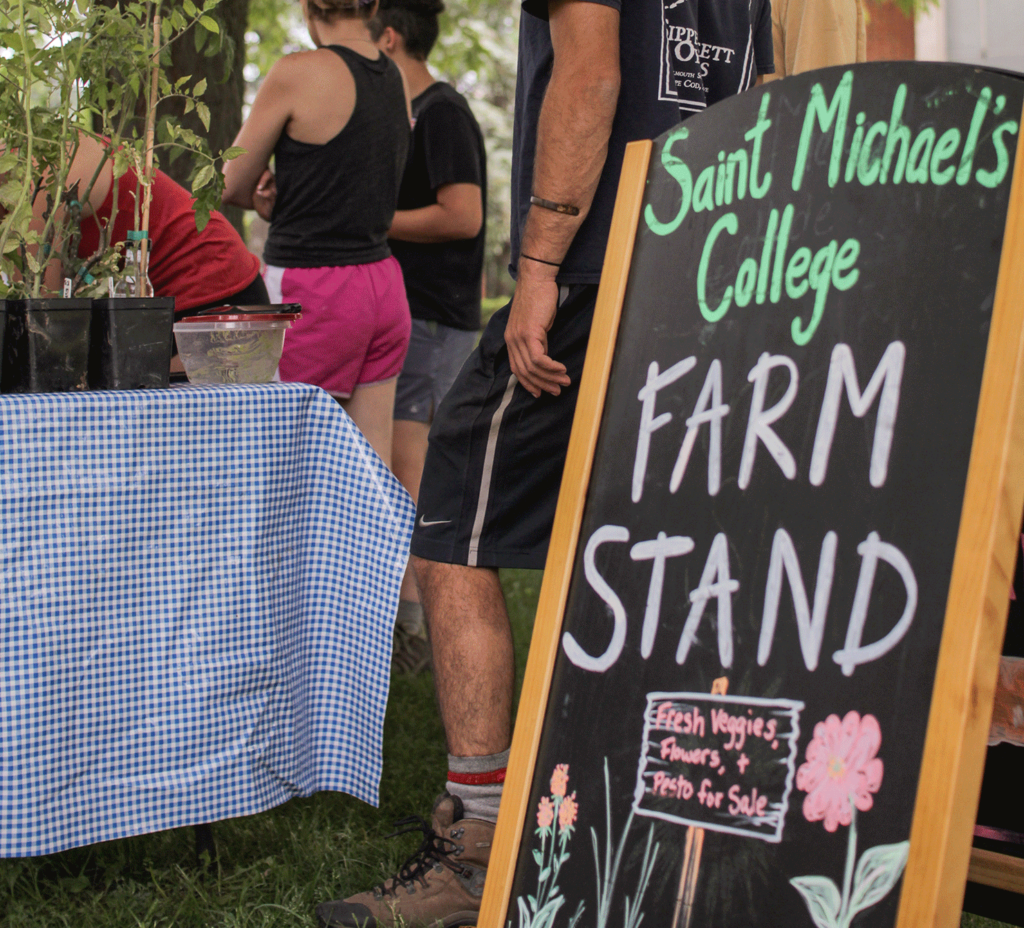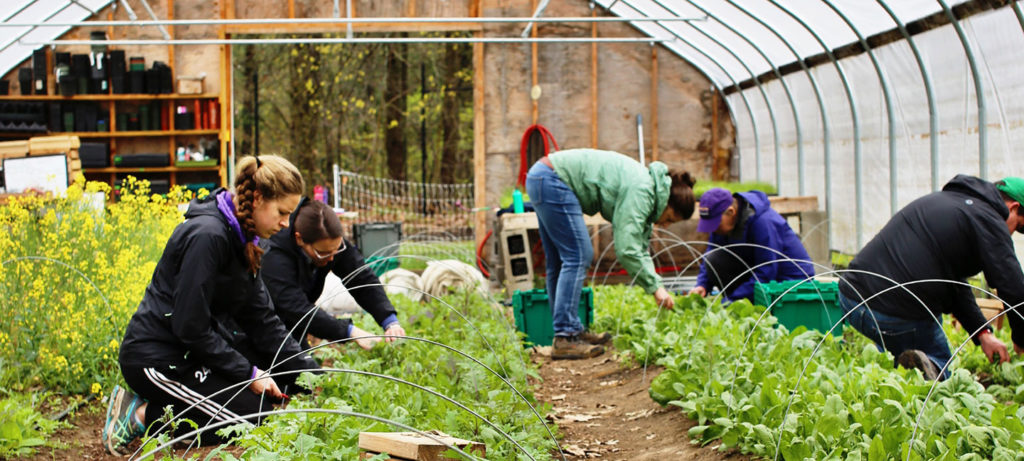Salad Days exemplify spirit and mission of Center for Environment, Farm
“Salad Days,” a cherished summer tradition of recent years, encompasses much of the philosophy, experience and heart of the Saint Michael’s College Center for the Environment and its campus Farm where these popular community lunches take place, typically three times over the growing season’s warmest months.
Nesting birds chirped in a corner of the wooden shelter sitting beside bounteous rows of produce, and picnic tables full of visitors who sampled fresh produce in their luncheon salads this sunny noontime on Tuesday, August 1. Fresh-baked sourdough bread with garlic scape pesto accompanied the salads as Kristyn Achilich ’05, the Center for the Environment director, welcomed nearly 50 guests.
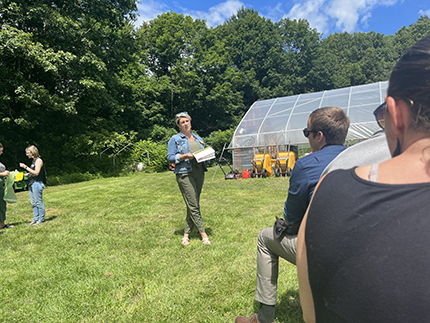
Kristyn Achilich ’05, director of the Center for the Environment, speaks at Tuesday’s Salad Days lunch. (photo by Elizabeth Murray ’13; large photo behind headline by Caitlin Lei)
Visibly pleased with the “wonderful turnout,” she observed that among the visitors this day were “past and present Farm team members, current and prospective students, colleagues from faculty and staff across all divisions of the college, and key community partners.”
Achilich said her intention was to start a brief reflection over lunch about the Farm and Center and their role in the campus and wider communities. Her conversation-starter was reading a quote from one of her and students’ favorite authors, the late environmentalist and academic Donella Meadows, whose system thinking “emblemizes what we do in the Center and how we try to train our students to think,” Achilich said.
“We can’t impose our will on a system,” Achilich read, quoting Meadows. “We can listen to what the system tells us and discover how its properties and our values can work together to bring forth something much better than can be produced by our will alone.”
Achilich explained her choice of quote: “We use her in a lot of our teaching around sustainability and sustainable farm and food systems,” she said of Meadows. “And I offer that today because we hope that through the Center, we’re teaching students not only how to do and how to think, but also how to listen … for multiple perspectives and world views and across disciplines.”
She emphasized that the Center is purposefully institution-wide and not just for one particular academic or student life program. “It takes a lot of thinking and collaboration and connection to make a program institution-wide and to make it successful and have as much heart as this one does,” Achilich said.
Keeping it Positive
The director acknowledged that recently Vermont underwent “a huge natural disaster,” which makes it easy “to get caught up in doom and gloom of the environmental movement — but we try to embrace that as an opportunity for learning and changing, and that’s what I like about Donella’s quote — she encourages us to listen to the natural systems and follow their lead. That’s what we try to teach our students and model for them. The answers are out here and we just have to learn to look and see and listen.”
Achilich explained how the summer Farm students not only have worked at the growing site, but out in the community among partners, learning from farmers and giving back in service and labor hours. During these community encounters, they share ideas on how to farm and mitigate future climate disaster, “and what that looks like for the future.”
“It’s an amazing, highly engaging and successful partnership, and a way to bring diversity of knowledge and perspective back to the College,” she said, adding that the Center’s other key focus areas in actions and regular group reflections are ecological restoration, sustainability and environmental analysis.
“Our students function at the intersect of academic knowledge, career preparedness and leadership development in these areas, and the Farm is our flagship program of the Center that is fully fleshed out,” she said. “A couple others are in development now, but will all follow the Farm model.”
With that, Achilich turned it over to the student Farm team and its staff leader Christine Gall, “who together made this site as gorgeous as it looks now and this food as tasty as yummy as it is. The idea was “to highlight what all of that, and the collaborations they’ve embraced this summer, mean to them, Achilich said.
Gall then briefly told the gathering about being the manager of Farm and Food Program, “which means I oversees this space and students who interact with it.” Her small crew of five students works 32 hours a week, 13 weeks total in the summer, she said.
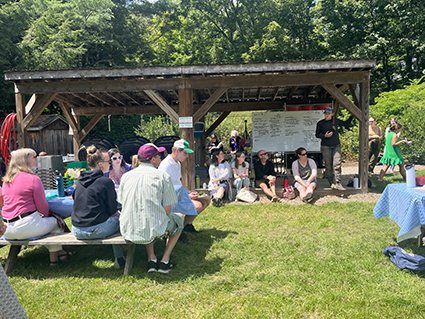
Christine Gall, Farm and Food Program manager, addresses salad day guests, with her summer Farm crew students seated beside her under the shelter. (photo by Elizabeth Murray ’13)
Gall said that as the students start transitioning this time of year back to course work and the fall semester, “they are thinking a lot about what this program has meant to them and what they’ve gained from it and what they are taking away.”
The manger then proceeded to lead an activity to highlight student thoughts on those topics, as well as “pull out thoughts” from the wider community, explaining, “Our farm is for and by the community, and without it we cannot function, so you are all very much important to this space in terms of making it what it is.”
Her prompt, popular also with the College’s MOVE community volunteers in Campus Ministry to reflect on meaningful work, she said, was to “think of word or two that summarizes what the Farm means to you and what you have taken away from it.” She invited anybody present to shout words out after the student started things out.
Following are some of the words that Farm Crew students and the Salad Days guests came up with to summarize the Farm and its spirit:
“Investment, community, inspiration, connection, excellent CSA (Community Supported Agriculture), bounty, hope, healthy food, teamwork, refreshing, stories, joy, joyful, inspirational, delicious, second helpings, experiential learning, hard work, collaborative, relationships, beauty, spinach, healthy, growth, abundance, tulips, carrots, serene, pollinators, supportive, community engagement, integrity, holistic” – and, from a late-arriving Farm crew worker, “fantastic!”
Editor’s note: In the summer of 2024, the Center for the Environment was rebranded to the Institute for the Environment. This story was published before the rebrand and, thus, bears the previous name.

For all press inquiries contact Elizabeth Murray, Associate Director of Communications at Saint Michael's College.

